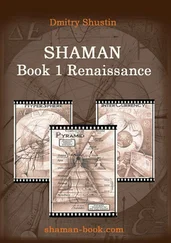The sentence was read out to her father after they crossed the bridge: the revolutionary tribunal commuted his sentence from execution to lifelong banishment.
They pushed him out onto the rails, tossed him a knife, a sub-machine-gun with one clip of cartridges and an old gas mask, then helped Sasha get down. The soldier who had shown the little girl the horsy and the doggy waved to her.
Could he be one of the men who had been shot today?
The feeling of breathing someone else’s air grew stronger when she squirmed into a black gas mask taken off one of the bodies by the man with the shaved head. Every tiny little stretch of her journey cost someone’s life. The man with the shaved head would probably have shot them anyway, but now that Sasha was here, she was an accomplice.
It wasn’t only because he was tired of fighting that her father hadn’t wanted to come home. He used to say that all his humiliations and deprivations weighed less than even a single human life. He suffered in order not to cause suffering to others. Sasha knew that the pan of the scales holding all the lives he had taken already hung very, very low, and her father was simply trying to restore the balance.
But the man with the shaved head could have intervened sooner, couldn’t he? He could have simply frightened the men on the trolley, just by appearing, and disarmed them without firing a single shot: Sasha was sure of that. None of the dead men was a worthy opponent for him. Why did he have to do that?
The station of her childhood was closer than she thought. In less than ten minutes its lights were glimmering ahead of them. There was no one guarding the approaches to Avtozavod: the station’s inhabitants obviously placed too much faith in the locked hermetic doors. Fifty metres before the platform, the man with the shaved head switched the engine to low speed and told Homer to take the helm, while he moved closer to the machine-gun.
The trolley rolled into the station almost without a sound and very, very slowly – or perhaps time was standing still for Sasha, so that she could see everything and remember it all in a few brief moments? On that day her father had left her in the care of his orderly, telling him to hide her until everything was sorted out. The orderly led her deep into the underbelly of the station, to one of the service areas. But even from there they could hear the simultaneous roar of a thousand throats, and he went dashing back to be with his commander. Sasha hurtled along the empty corridor behind him and darted out into the hall…
They drifted along the platform, and Sasha looked at the spacious family tents and the carriages equipped as offices, the little kids playing tag and the old men chatting, the sullen men cleaning their guns…
And she saw her father standing in front of a thin line of angry, frightened men who were trying to enclose and restrain a raging crowd. She ran over to her father and pressed herself against his back. He swung round crazily, shook her off and slapped his adjutant in the face as he came hurrying up. But something had already happened to him. The line of men, which had frozen with its automatic weapons raised in anticipation of the command to open fire, was ordered to stand down. The only shot was one fired into the air. Her father started negotiations on the peaceful handover of the station to the revolutionaries…
Her father believed that a man was given signs. You just had to know how to see them and read them correctly.
No, time hadn’t slowed down just so that she could revisit the final day of her childhood. She spotted the armed men rising to meet the trolley before the others did. She saw the man with the shaved head reach the trigger switch with an elusive, fluid movement and start turning the thick, burnished barrel towards the amazed sentries. She heard the hissed command to halt the trolley before the old man did. And Sasha realised so many people would be killed now, that she would feel as if she were breathing someone else’s air for the rest of her life. But she could still prevent the massacre, save them and herself and one other man from something more appalling than any words could express.
The sentries were already taking their automatics off the safety catches, but they fiddled with them too long, and were several moves behind the man with the shaved head. She did the first thing that came into her mind – she jumped up and pressed herself against his lumpy, iron-hard back, hugging him from behind and clasping her hands on his chest, which was so still, it didn’t seem to be breathing. He shuddered as if she had lashed him with a whip, hesitated… The sentries, finally ready to fire, were bewildered too.
The old man understood her without any words.
The trolley shot off down the tracks, belching out black clouds of bitter smoke, and Avtozavod Station receded rapidly – back into the past.
All the way to Pavelets Station no one spoke another word. Hunter freed himself from the unexpected embrace, parting the girl’s arms as if he were bending open a steel hoop that prevented him from breathing. They slipped past the only guard post at full speed and the spray of bullets directed at them from it bit into the ceiling above their heads. The brigadier managed to pull out his pistol and reply with three soundless flashes of flame. He seemed to have brought one man down, but the others melted into the walls, squeezing themselves in behind the shallow lips of the tunnel liners to save themselves.
‘My, my,’ thought Homer, glancing at the girl, who was quiet and subdued now. He had assumed the love line would come into play soon after the heroine’s appearance, but everything was developing too fast. Faster than he could understand it all, let alone write it down.
They rode into Pavelets Station and stopped.
The old man had been here before, at this station straight out of the mists of Gothic legend. Instead of the plain columns that supported the vaults in all the newer, outlying stations of the Metro, Pavelets Station was supported by a series of airy, rounded arches that were too high for ordinary people. In typical fashion for legends of that kind, Pavelets was the victim of a distinctive curse. At precisely eight o’clock in the evening the hustle and bustle suddenly died away and the thriving station was transformed into its own ghost. Out of its entire dynamic and resourceful population, only a few daredevils were left on the platform. Everyone else disappeared – together with their children, personal effects, trunks stuffed with goods, benches and makeshift beds.
They all crammed into the refuge – the almost kilometre-long connecting passage to the Circle Line – and trembled there through the long night while monstrous creatures who had woken from their sleep prowled around on the surface at the Pavelets railway station. People who ought to know said these creatures were the unchallenged masters of the station building and the adjoining territory, and even while they slept no other beasts would dare to wander in there. The inhabitants of Pavelets had no defences against them: the shutters that cut off the escalators at other stations simply didn’t exist here, and the way out to the surface was always open. To Homer’s mind, it would have been hard to find anywhere less appropriate for an overnight halt. But Hunter thought differently: when the trolley reached the far end of the hall, it stopped.
‘We’ll stay here until the morning. Make yourselves at home,’ he said, pulling off his gas mask and waving his hand round at the station. And he left them. The girl watched him go, then curled up on the hard floor of the trolley. The old man made himself as comfortable as possible and closed his eyes, trying to doze off, but in vain. He was besieged again by thoughts of the plague that he was carrying round all the stations that were still uninfected. The girl couldn’t sleep either.
Читать дальше











